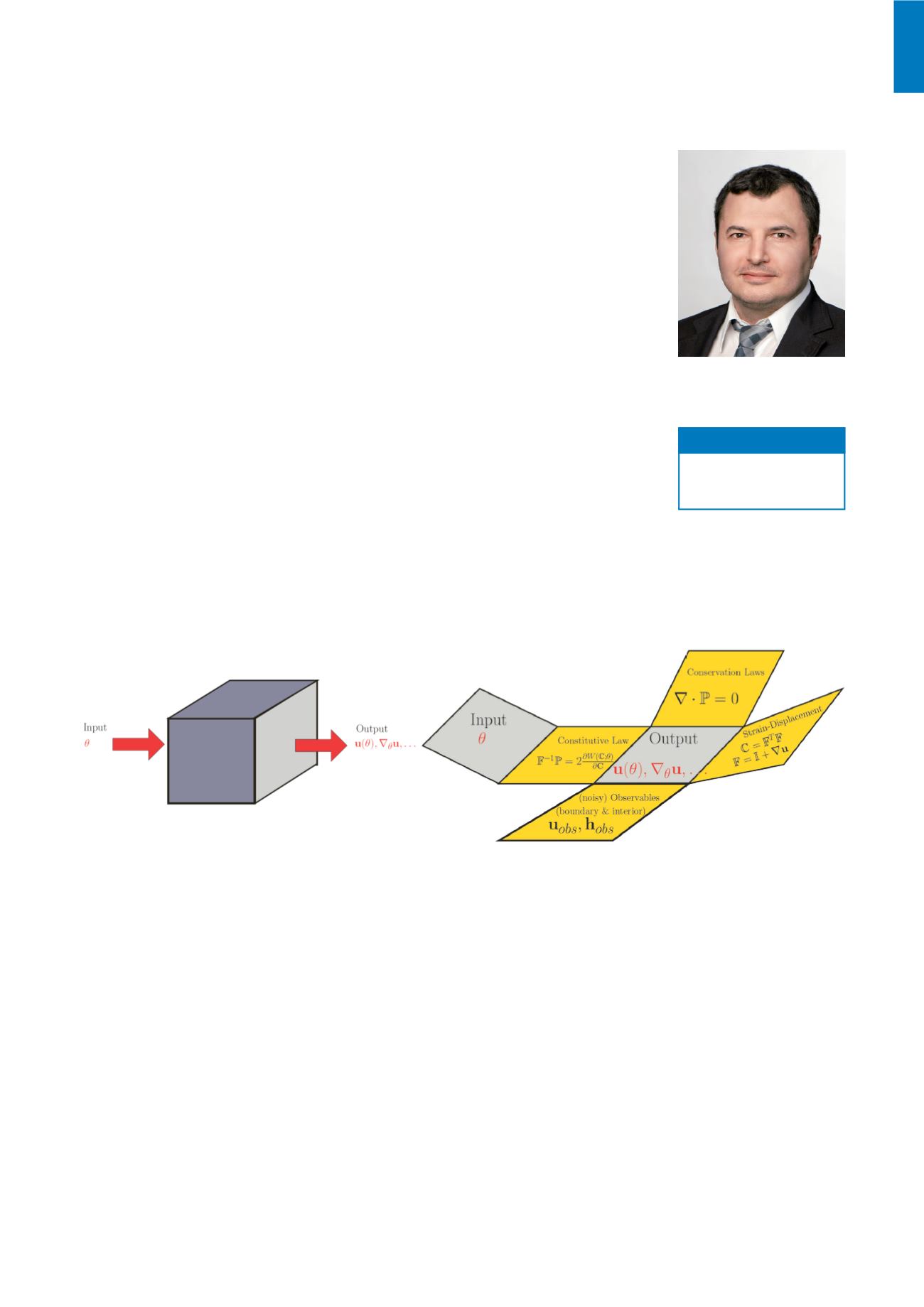

Continuum Mechanics
169
Continuum Mechanics
Predictive computational modeling
Prof. Dr. Phaedon-Stelios
Koutsourelakis, Ph.D.
Nonlinear Inverse Problems with Applications
in Medical Diagnostics
This project is concerned with the
numerical solution of high-dimensional,
model-based, Bayesian inverse problems.
Our motivating application stems from
biomechanics where several studies
have shown that the identification of
material parameters from deformation
data can lead to earlier and more accu-
rate diagnosis of various pathologies.
Such a process is naturally fraught with
significant uncertainties. One such source
is obviously the noise in the data which
constitutes probabilistic estimates more
rational. This is particularly important
when multiple hypotheses are consistent
with the data or the level of confidence
in the estimates produced needs to be
quantified. Another source of uncertainty,
which is largely unaccounted for, is model
uncertainty. Namely, the parameters
which are calibrated, are associated
with a particular forward model but one
cannot be certain about the validity of the
model employed. In general, there will be
deviations between the physical reality
where measurements are made, and the
idealized mathematical/computational
description.
n
The focus of the Continuum Mechanics Group in 2016 was the devel-
opment of novel models, methodologies and computational tools for
quantifying uncertainties and their effect in the simulation of engineering
and physical systems. Our work has been directed towards three fronts:
a) the calibration and validation of computational models using experi-
mental data, b) uncertainty propagation in multiscale systems, c) Design/
control/optimization of complex systems under uncertainty.
www.contmech.mw.tum.de p.s.koutsourelakis@tum.dePhone +49.89.289.16690
Contact
A highlight was the initiation of the ‘Focal
Area’ project on ‘Predicting Macroscopic
Behavior from MIcroscopic Simulators’
(PROMISe) which is funded by the Insti-
tute for Advanced Study. This is a collab-
orative project which brings together three
focus groups (Complex Systems Modeling
and Computation, Physics with Effective
Field Theories and Uncertainty Quanti-
fication and Predictive Modeling) and is
coordinated by Prof. Koutsourelakis. The
project will culminate in the organization
of the international Symposium on
‘Machine Learning Challenges in Complex
Multiscale Physical Systems’ which is to
take place at TUM-IAS from January 9-12
2017.
Another highlight was the fellowship
awarded to Prof. Koutsourelakis by the
Center for Interdisciplinary Research, Uni-
versity of Bielefeld (ZiF) and the Coopera-
tion Group, ‘Multiscale modeling of tumor
initiation, growth and progression: From
gene regulation to evolutionary dynamics’.
Traditional ‘Black Box’ vs. pro-
posed formulation (for nonlinear
elasticity)
(a) Black-box setting for Bayesian
model calibration.
(b) Proposed framework of
unfolding the black-box and
revealing all model equations


















